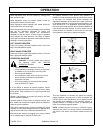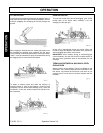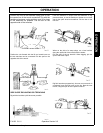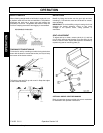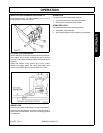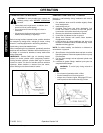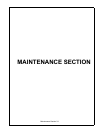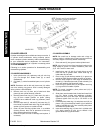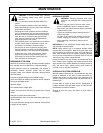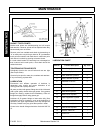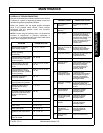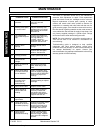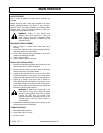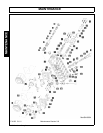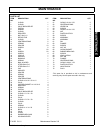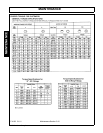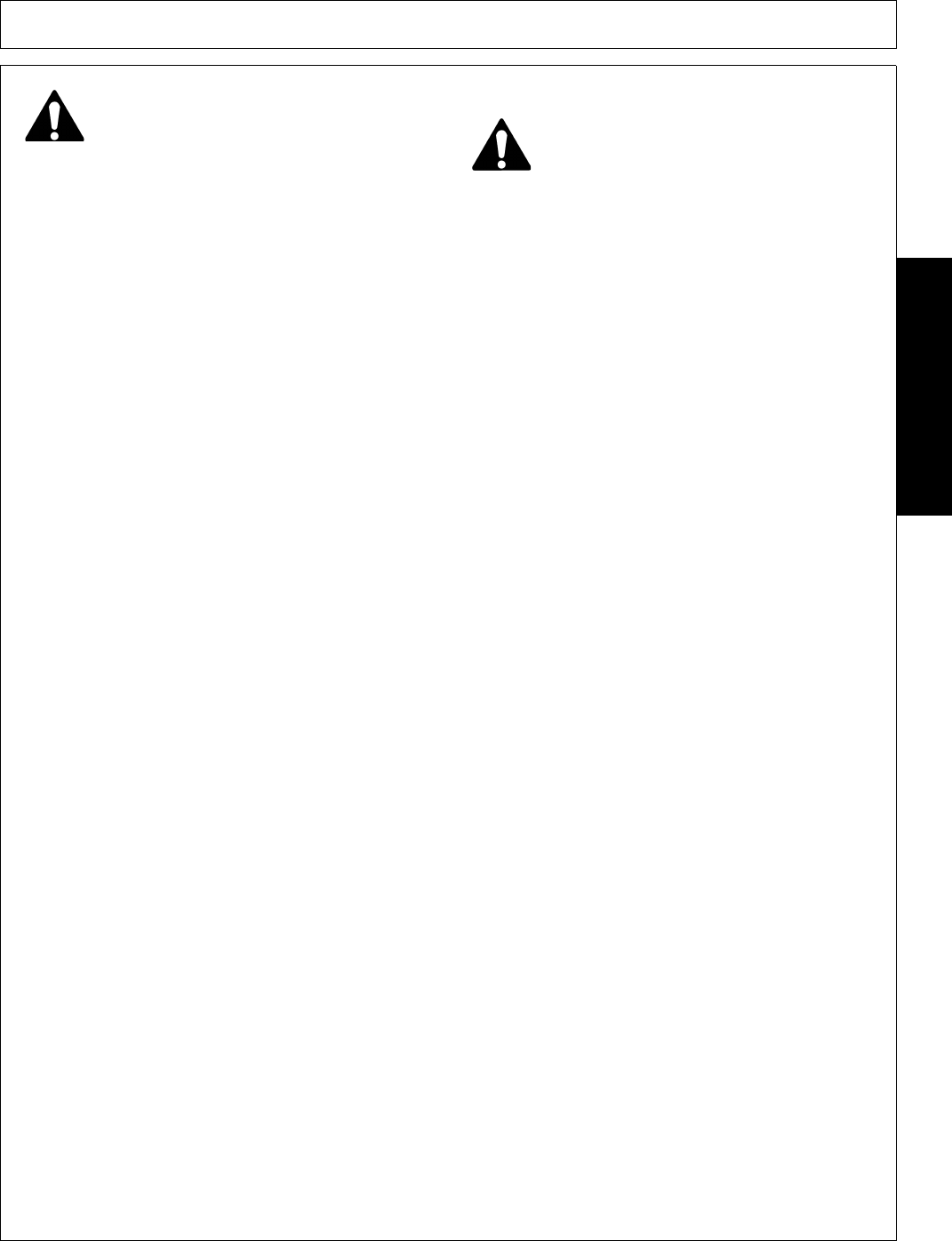
MAINTENANCE
F-4139 01/11 Maintenance Section 3-3
© 2011 Alamo Group Inc.
MAINTENANCE
CAUTION: To avoid possible injury, observe
the following safety rules when servicing
backhoe.
• Do not oil, grease or adjust backhoe while it is in
motion.
• Do not change any backhoe relief valve settings.
Relief valve settings are factory set for best backhoe
performance and safety.
• Escaping fluid under pressure can have sufficient
force to penetrate the skin and cause serious injury.
Be sure to relieve all presure before disconnecting
lines. Be sure all connections are tight and that
lines, pipes and hoses are not damaged before
applying pressure to the system.
• Fluid escaping from a very small hole can be almost
invisible. Use a piece of cardboard or wood - not
your hands - to search for suspected leaks.
• See a doctor at once if injured by escaping fluid.
Serious infection or reaction can develop if proper
medical treatment is not administered immediately.
• Protect your eyes - wear safety glasses. Guard
against injury when driving connecting pins or
performing any repair in which particles can chip
from work piece or striking tool.
BEGINNING OF SEASON
Remove all protective covering. Remove excessive grease
from cylinder rods if unit has been in long term storage.
Check hydraulic hoses for deterioration and replace if
necessary. Caution, hydraulic hoses may be under
pressure. Make sure pressure has been relieved before
removing hoses.
Lubricate all grease fittings and oil handle linkage.
Clean and inspect all safety and operation decals. Replace
missing or damaged decals.
Replace oil filter.
Fill hydraulic fluid to proper level.
Tighten all loose bolts, nuts and set screws (See Torque
chart).
Sharpen or replace worn bucket teeth.
Operate backhoe slowly for a short time before placing unit
under full load.
Fully cycle backhoe through all movements several times
to purge air from system.
HYDRAULIC HOSES
WARNING: Escaping hydraulic fluid under
pressure can penetrate skin causing serious
injury.
• DO NOT use your hand to check for leaks. Use a
piece of cardboard or paper to search for leaks.
• Stop engine and relieve pressure before connecting
or disconnecting lines.
• Tighten all connections before starting engine or
pressurizing lines.
• Oil leaks on the suction side will draw air into the
system, causing oil in reservoir to appear foamy.
• When tightening connections, always use two
wrenches.
IMPORTANT: Do not overtighten fittings. Make them just
tight enough to eliminate leaks.
NOTE: Apply sealant only to all tapered threads unless
coupled with swivel adapters. When using teflon tape, wrap
tape clockwise (as viewed from end) and wrap tape only
twice. Keep sealant away front first two threads of tapered
end to prevent contamination of hydraulic fluid. Do not use
sealant on o-ring or flare adapter threads.
Hoses on backhoe are very severely worked and will fail in
time. Examine them regularly and replace any that show
signs of failure. Pay careful attention to routing of hoses so
they can move freely, without kinking and cannot be
pinched or cut by any part of backhoe.
HYDRAULIC SYSTEM RESERVOIR
Maintain reservoir fluid level at 1 inch below tank top when
bucket is extended to full reach, bucket rolled back for
loading and resting on the ground, and stabilizers fully
raised. If reservoir is overfilled, fluid may be forced out of
breather cap.
Fill with SAE 10 engine oil with API”SD” classification in
northern climates and SAE 40W engine oil with API”SD”
classification in southern climates.
Change oil and filter every 200 hours or more often if
necessary.



